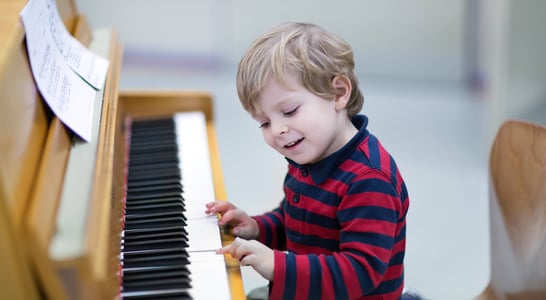
International Day of Non-Violence
Consider the historical figures who chose the path of pacifism, and consider how you can practice and support non-violence in your own life, in a world of blood and war.
This world has seen its share of bloody wars that ended countless lives and filled many more with grief. No matter what country you go to, there are stories of how someone’s greed or lust for power resulted in the killing of innocent people and the destruction of beautiful cities.
Even wars that were fought for a good cause, like the Civil War of the United States of America, that resulted in slavery being abolished, have been responsible for a great many deaths.
Fortunately, however, there are people in this world who have gone about making the changes they thought necessary without violence or pure brute force, and these are the people that the International Day of Non-Violence celebrates.
No matter where you live, there’s no denying that a day celebrating non-violent ways of making a statement and bringing about change is long
How to Celebrate the International Day of Non-Violence
One of the best ways to honor Mahatma Ghandi’s life and achievements, as well as those of other world leaders who have won their battles without violence, you could choose one of these people and read their biography—find out what motivated them to act as they did, what helped keep them strong even when they saw terrible things happening all around them.
Such people include Civil Rights activists Martin Luther King and Rosa Parks, Beatles star John Lennon, humanitarian activist and “King of Calypso” Harry Belafonte, and of course anti-apartheid movement leader Nelson Mandela.
The life stories of each of these people
Children can be cruel to one another, so it is important to
The History of the International Day of Non-Violence
The International Day of Non-Violence is observed on October 2nd in honor of the birthday of Mahatma Ghandi, one of the most influential political activists of all time.
Ghandi used nonviolent civil disobedience to eventually overthrow the British, who ruled India at the time. Despite being thrown in jail numerous times, but nothing ever caused him to abandon his peaceful approach, which eventually resulted in India finally gaining the independence they’d wanted for years.
The independence of his country was not the only issue
Even though he was assassinated by a Hindu nationalist in 1948, he has never been
On June 15th, 2007, the United Nations General Assembly voted to make the anniversary of Mahatma
The day is mostly dedicated to spreading the message of non-violence to as many people as possible in all countries of the world.
International Day of Non-Violence FAQs
How did Mahatma Gandhi’s early life influence his philosophy of non-violence?
Gandhi’s formative years in Porbandar, India, and his legal studies in London exposed him to diverse cultures and ideas.
His experiences with racial discrimination in South Africa deeply impacted him, leading to his commitment to non-violent resistance as a means to achieve social justice.
Are there any unique global traditions associated with the International Day of Non-Violence?
In some countries, communities organize “peace meals” where individuals from different backgrounds share food and stories, fostering understanding and unity.
These gatherings aim to break down barriers and promote a culture of peace.
What are some common misconceptions about non-violent movements?
A prevalent myth is that non-violence is passive and ineffective.
However, history shows that strategic non-violent actions, like boycotts and civil disobedience, have led to significant social and political changes.
How did other global leaders draw inspiration from Gandhi’s non-violent principles?
Leaders like Martin Luther King Jr. and Nelson Mandela adopted Gandhi’s non-violent methods in their struggles against racial segregation and apartheid, respectively, achieving monumental societal transformations.
Are there any symbols associated with the International Day of Non-Violence?
The “peace dove” is often used during observances, symbolizing hope and the universal desire for a world without violence.
Additionally, some events feature the spinning wheel, or “charkha,” representing self-reliance and non-violent protest.
How do educational institutions participate in this day?
Schools and universities worldwide host workshops, seminars, and discussions on conflict resolution, emphasizing the importance of dialogue and understanding in resolving disputes peacefully.
What role does art play in promoting the message of non-violence?
Artists create murals, sculptures, and performances that depict themes of peace and non-violence, inspiring communities to reflect on the impact of violence and the importance of harmony.
How has the digital age influenced the observance of the International Day of Non-Violence?
Social media campaigns using hashtags like #NonViolenceDay raise awareness, share stories of peaceful protests, and encourage individuals to commit to non-violent actions in their daily lives.
Are there any notable literary works inspired by the theme of non-violence?
Leo Tolstoy’s “The Kingdom of God Is Within You” profoundly influenced Gandhi’s philosophy, advocating for non-violent resistance and the power of love over coercion.
How do different religions view the concept of non-violence?
Many religions, including Buddhism, Jainism, and Christianity, emphasize non-violence as a core principle, teaching followers to practice compassion, forgiveness, and peaceful coexistence.
Also on ...
View all holidaysNational Name Your Car Day
You can’t truly love your car until you give it a name. Consider your car’s quirks and personality and come up with a fitting name, or try a Car Name Generator.
World Smile Day
Bring smiles to the faces of others through acts of kindness, community work, and of course offering your own lovely smile to brighten anyone’s day.
Kids Music Day
It’s never too early to start teaching kids the joy of music. Take part in a local Kids Music Day event, or just sit down with your child to teach them some basics.



